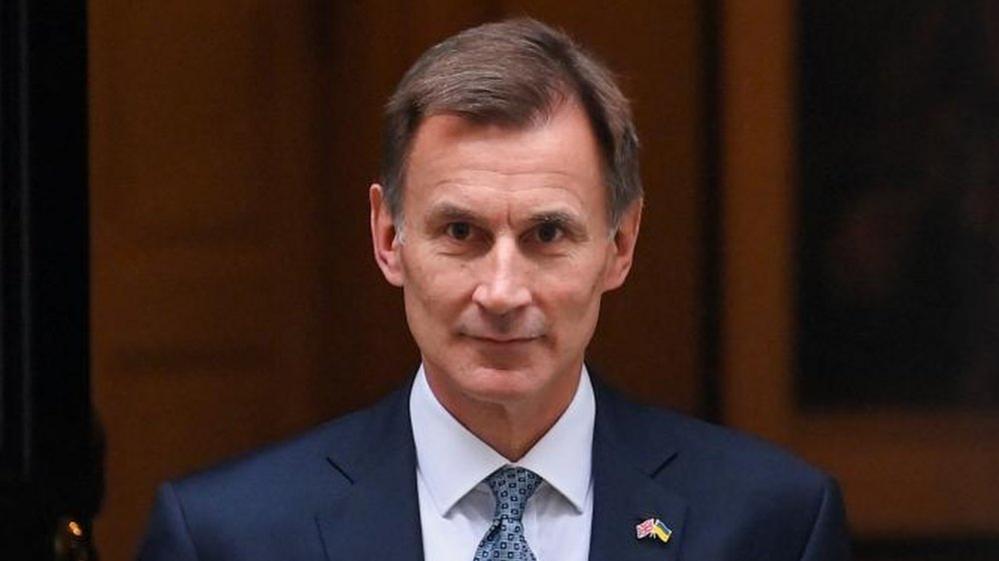Record numbers running out of cash every month
- Published
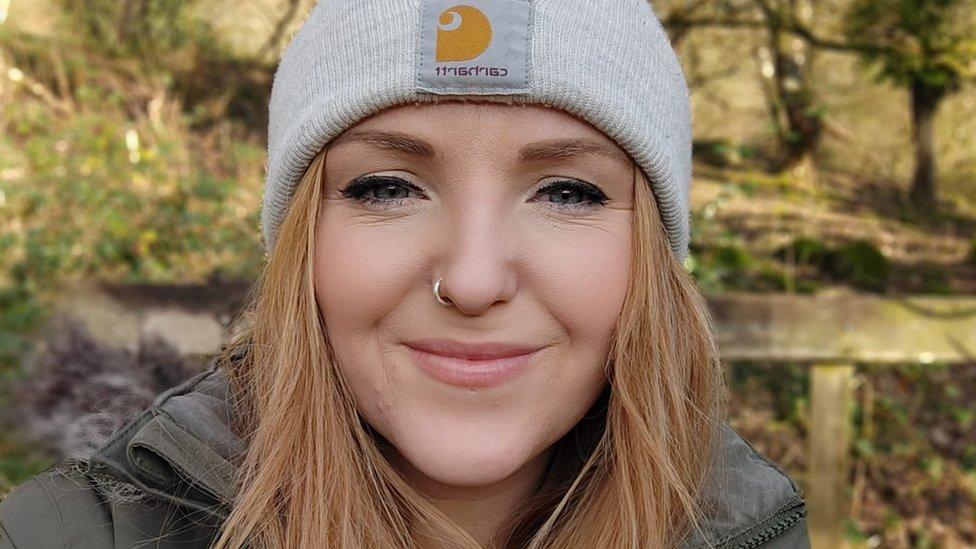
"I have to work more and more to fill the gaps", said Rebecca, from Bristol
The number of people running out of money each month has trebled in the last four years, according to Citizens Advice experts.
In 2023, debt advisors in the Bristol area helped many who have a "negative budget", despite working additional jobs to try and make ends meet.
That figure had risen from 341 in 2019 to 1,061.
Chantal Watts, of South Gloucestershire Citizens' Advice, said: "These people's backs are against the wall."
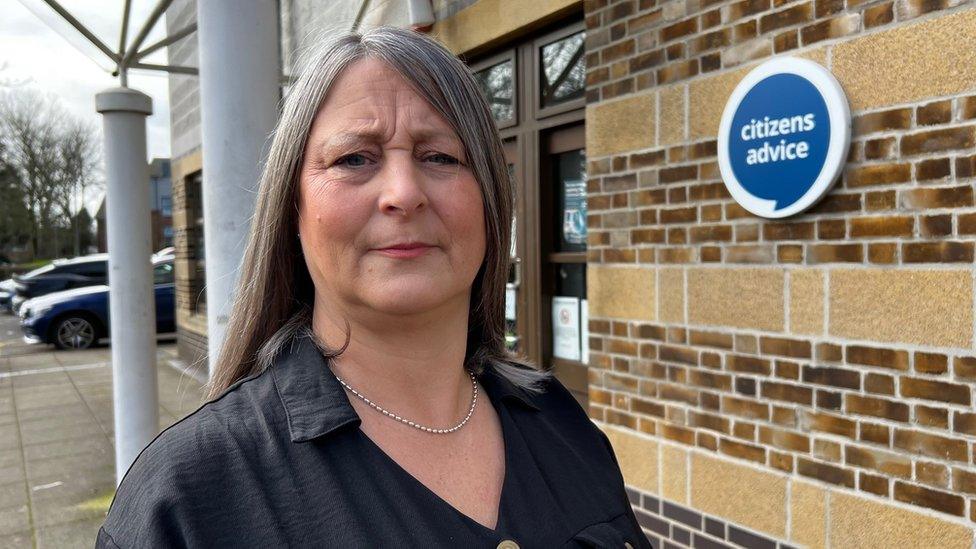
Chantal Watts, CEO of South Gloucestershire Citizens Advice says more people are seeking help and advice
Rebecca is one of those who finds that her money runs out before the month does.
A 40-year-old single mum raising her son in Bristol, she has seen her rent rise from £700 to more than £1,100 per month.
"Universal Credit used to pay most of the rent," she explained. "But while the rent has gone up, the benefit has not. It is still about £700 a month.
"So I do get some help, it's just it has not kept up with all the bills."
She works 30 hours a week while her son is in school, and does extra wherever she can.
"I'm doing hairdressing, I help friends who do catering for events, I'm having to work more and more," she said.
"But it's not fun money or anything, I need to work wherever I can just to pay the bills."
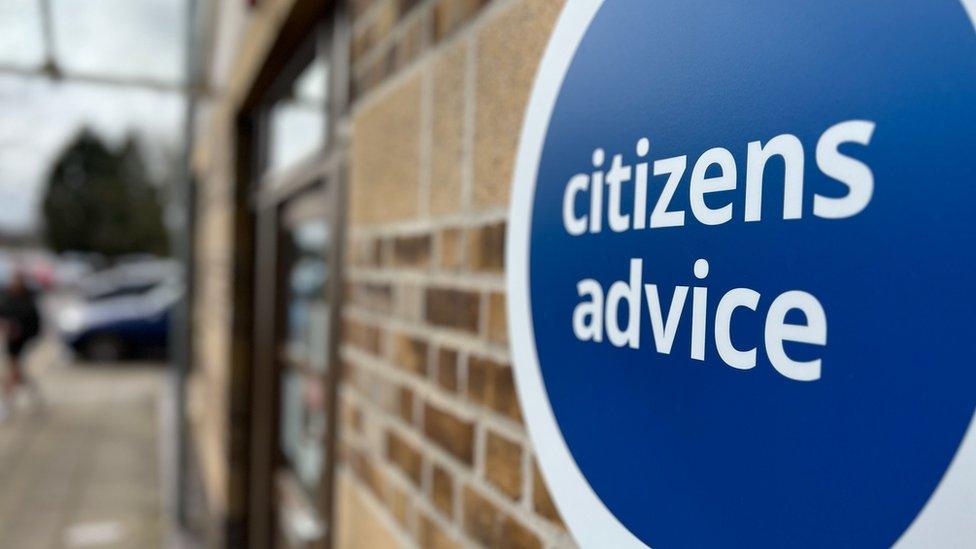
Citizens Advice workers have seen many more working people struggling to pay their bills
Rebecca was one of those seeking help from Citizens' Advice. When I dropped in to the advice centre in Yate, South Gloucestershire, staff were going through the cases they had seen recently.
Angus Macdonald, one of the debt advisors, described the sort of people they are seeing.
"It's not people you'd expect," he said.
"It's people in work as well as people on benefits."
What has pushed these people into a 'negative budget' is the relentless rise in energy costs.
Although energy prices have dropped slightly, gas and electricity are still much more expensive than before 2022, when Russia invaded Ukraine.
Ofgem, the energy regulator, recently reported that British consumers have built up £3.1bn of debt in unpaid energy bills.
Overall, inflation is now around 4%, lower than the highs of 11% in 2023. But many food prices are still rising fast.
Sugar, for instance, went up 11% in the past year.
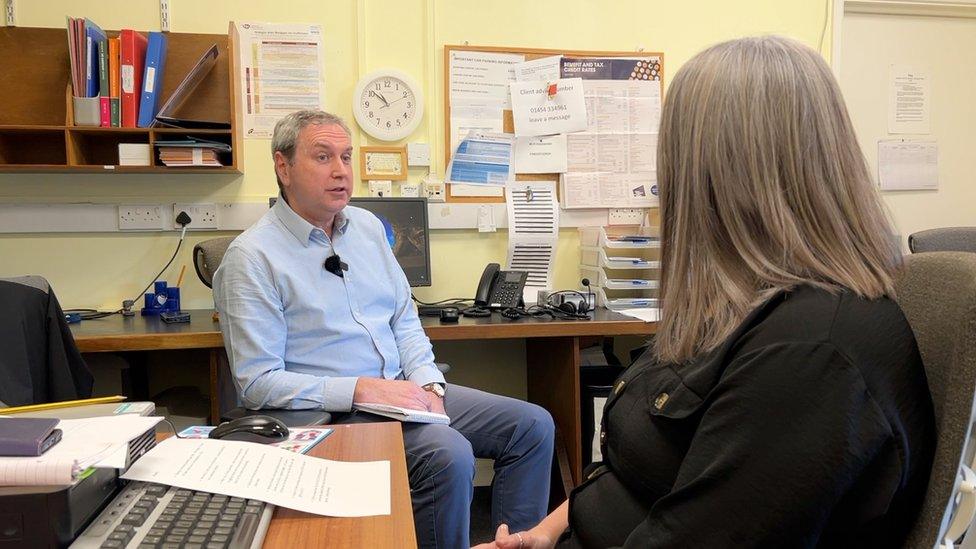
Angus Macdonald, a debt advisor with Citizens' Advice, sees families in negative budgets every day
Angus Macdonald explained that when bills stack up, families have little "financial resilience".
"They haven't got any savings," he said.
"It's a question I always ask of people: have you got any savings? The answer is always no."
In the report, debt advisors from across Bristol, North Somerset and South Gloucestershire also calculated the amount families are falling short every month.
On average, it is £214. That means every month their costs are £200 more than their income.
"Stretched too thin"
The challenge for these families is that they are already working, so it is hard for them to earn any more.
Chantal Watts explained: "We are looking at dual-income families, both are working full time, and they're not making ends meet, their backs are against the wall.
"They can't increase their hours because they are already full time, then there's child care costs, pension contributions, they are just stretched too thin."
On Wednesday, the Chancellor, Jeremy Hunt, will announce his budget for the government. While millions face negative household budgets, the Chancellor does have a small surplus.
He is under pressure to spend that on tax cuts, but the Citizens' Advice team want him to increase Universal Credit and continue the £300 cost of living payments, to help the families they work with.
And Rebecca? What does she want the Chancellor to do?
"Stop energy companies making so much profit," she says, "and help everyday people to bridge the gap."

Follow BBC Bristol on Facebook, external, X, external and Instagram, external. Send your story ideas to us on email, external or via WhatsApp on 0800 313 4630, external.
Related topics
- Published4 March 2024
